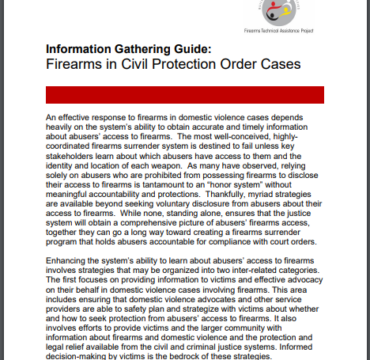
Featured Publication
Enhancing Juvenile and Family Court Responses to Human Trafficking: A Project Snapshot

Technical Assistance Bulletin
Judge’s Action Alert: Using the Family First Prevention Services Act to Strengthen Reasonable Efforts Determinations

Technical Assistance Bulletin
Judicial – Academic Partnerships For Juvenile Drug Treatment Courts: A Technical Assistance Bulletin

Technical Assistance Bulletin
Judge’s Action Alert: Judges’ Roles in Promoting Youth-Centered Legal Permanency
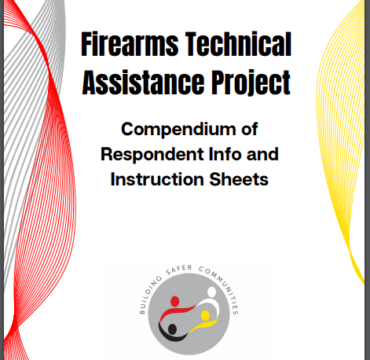
Technical Assistance Bulletin
Firearms Technical Assistance Project: Compendium of Respondent Info and Instruction Sheets
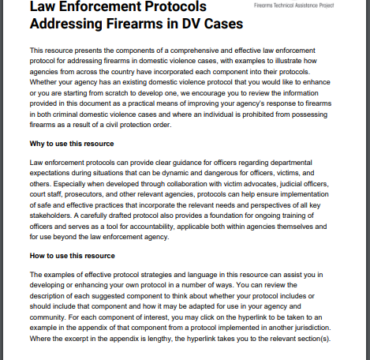
Technical Assistance Bulletin
Suggested Components of Law Enforcement Protocols Addressing Firearms in DV Cases
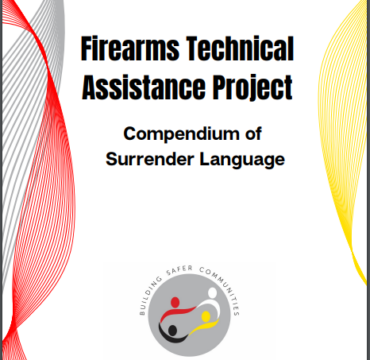
Technical Assistance Bulletin
Firearms Technical Assistance Project: Compendium of Surrender Language
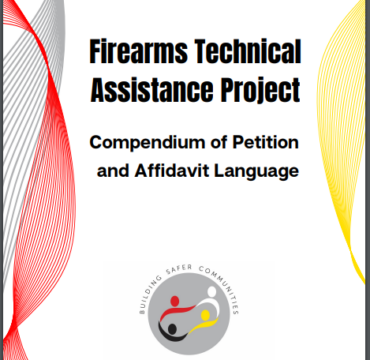
Technical Assistance Bulletin
Firearms Technical Assistance Project: Compendium of Petition and Affidavit Language
Support positive change in our courts and communities.
